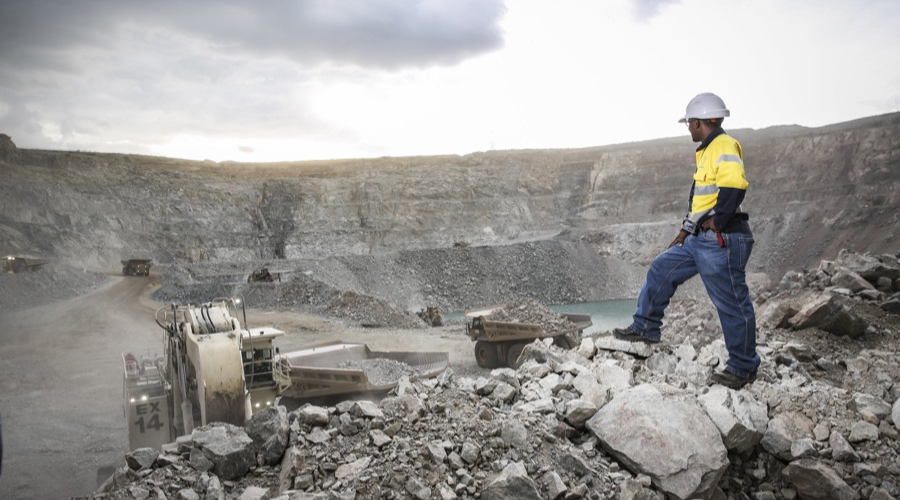Tanzania says Barrick to pay money owed by Acacia to Gov’t

Shares in Acacia Mining (LON:ACA) shot up Wednesday after Tanzania’s President said parent company Barrick Gold (TSX, NYSE:ABX) is willing to reimburse money that’s owed to the government.
Barrick, which holds a 63.9% interest in Acacia, said chairman John Thornton met President John Magufuli to “discuss issues” pertaining to the Tanzania-focused miner, and the country’s current ban on mineral concentrate exports.
“The meeting was constructive and open, with the parties agreeing to enter into negotiations to seek a resolution that is in the best interests of all stakeholders, including Tanzania, Barrick, and Acacia,” the world’s largest gold producer said in a brief statement, without mention of possible payments.
In a separate statement issued later in the day, Acacia said that the negotiations have yet to commence, so no agreements have been reached. It noted, however, that the talks “will seek a resolution that is in the best interests of all stakeholders.”
Barrick confirmed talks with Tanzania’s President were held Wednesday, but didn’t mention the details of what, if anything, had been agreed.
“Thornton said his company is ready to hold talks with Tanzania that will consider the interests of both sides and is ready to pay all the money it’s expected to pay Tanzania,” the presidency said in an emailed statement, according to Bloomberg.
A panel of experts will be established to determine how much Acacia owes Tanzania, the statement added.
Shares in Acacia rose as much as 9.4% on the news to 297.90p at 3:22pm London time. Year-to-date, however, the stock is down almost 22%.
Barrick’s shares were also moderately up in both New York and Toronto in early trading.
Tanzania has accused Acacia of operating illegally and evading tens of billions of dollars in taxes by understating the amount of metal concentrate in exports from the three gold and copper mines it operates in the country.
In March, the government also banned all unprocessed metal exports, which Acacia has said is costing it $1m a day.
Mining contributes 3.5% to the gross domestic product of Tanzania, which is Africa’s fourth-largest gold producer. The government, however, wants to increase that piece of the pie by requesting more taxes from the sector. It has been on a drive to add value to its exports rather than send raw materials abroad.
Additionally, the nation is pushing mining firms to list a 30% stake on the Dar es Salaam stock exchange by August, claiming the move will increase transparency and spread wealth from Tanzania’s natural resources.
Acacia has repeatedly rejected all allegations of wrongdoing and called for an independent inquiry into the government’s accusations.
In order to provide clear and factual information around the current situation, the company also created a micro-site, with background, its answers to Tanzania’s allegations, and details of the company’s contribution to the country’s economy.
More News
Contract worker dies at Rio Tinto mine in Guinea
Last August, a contract worker died in an incident at the same mine.
February 15, 2026 | 09:20 am
{{ commodity.name }}
{{ post.title }}
{{ post.date }}




4 Comments
CN
Let’s see how all this goes. Very interesting developments.
CN
A brief talk at the State house https://youtu.be/81otsXvKBng?t=680
A 1st fan
I wish all Africans have John Maga full as a president the best president all around
Hardolph Wasteneys
I had a look at the micro-site and strongly suspect that the govt analyses are being done by XRF either handheld unit or a bench top. (The site shows certifiable analyses by independent labs as well as the amounts alleged by the government.) The super high Iridium, and REEs are consistent with the kind of spurious analyses produced by XRF units. Gold analyses are completely useless by XRF as there are large Au M line overlaps with K lines from As resulting in high gold reports even when there is no gold and maybe just some arsenopyrite. They will detect gold if it is present, but the results are only reliable if that is all that is present. Similar analytical challenges result in iridium reports even when not present. However, copper is usually accurate with these units if used correctly so that is a bit of a mystery. I would bet that Acacia and Barrick suspect this to be the problem, but are reticent to embarrass the Tanzanians by suggesting it.